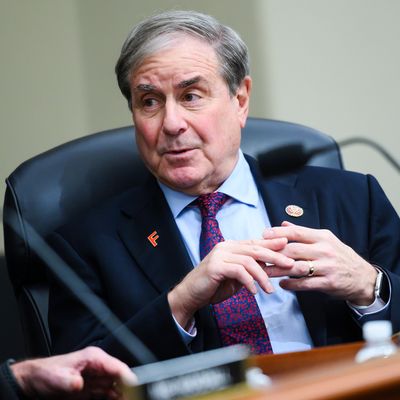
In the most mechanical and predictable segment of congressional Democrats’ drive to enact Joe Biden’s American Rescue Plan, the House this week is expected to pass (on a party-line vote) a fiscal year 2021 budget-reconciliation bill encompassing the new administration’s $1.9 trillion COVID-19 relief and stimulus proposal. The first step in a very active week in the House will involve the Budget Committee assembling the reconciliation bill from items developed and reported last week by the nine authorizing committees with jurisdiction over the wide-ranging programs affected by the plan. The bill will hit the floor later this week, even as preparations continue in the Senate for the next, more difficult phase of the process.
So far the House is following Biden’s original plan quite closely, with a few generally accepted tweaks (e.g., the Ways and Means Committee’s adjustment of the eligibility phaseout for the bill’s $1,400 stimulus checks, which will improve the targeting of the benefit as some moderate Democrats prefer). A final tweak will reduce the package’s overall cost from the $1.95 trillion approved by the individual committees to the $1.89 trillion provided for in the budget resolution, passed earlier this month, to set up the reconciliation bill. One modification of the Biden plan that is raising eyebrows, however, is a cutoff of federal supplemental unemployment benefits in August — during a planned congressional recess — as opposed to September, as the president originally proposed. This change was apparently made to pay for the pension-fund relief being sought by Democratic-aligned unions.
At this point, no one is expecting Republican support for the bill in the House, or enough Democratic heartburn to endanger its passage. But the real drama could emerge in the Senate, whose Democratic managers are planning to take the House bill directly to the floor without parallel action in the upper chamber’s committees.
Quiet discussions are already underway between Senate Democrats and the Senate parliamentarian, who will decide if any of the House-passed provisions violate the Byrd rule (which forbids provisions deemed non-germane to the budget) and must be excluded from the Senate version (and thus from the final bill). The main suspect is Biden’s proposal for a $15 federal minimum wage, which faces additional trouble from skepticism expressed by Democratic senators Joe Manchin and Kyrsten Sinema. In theory, the president of the Senate (Vice-President Kamala Harris) could overrule an adverse parliamentarian’s ruling, as could a simple Senate majority, but the White House has indicated Biden might oppose such an effort. With not a single vote to spare, and no sign yet of any Senate Republicans being willing to cross the aisle, the shape and size of the final legislation is essentially in the hands of possible dissenters like Manchin.
Largely excluded (or self-excluded by their own obstructionist tendencies) from the process, congressional Republicans can be expected to denounce the process as excessively partisan (though it is no more partisan than their own use of reconciliation in 2017). Republicans also say the legislation itself is too costly and too broad, arguing that initiatives ranging from the minimum-wage hike to general-purpose assistance to state and local governments have nothing to do with COVID-19 (the House GOP’s campaign arm has described the bill as a whole as a “$2 trillion socialist boondoggle”). But Democrats will rely on unity, the speed the reconciliation process makes possible, and reasonably strong public support extending well into the Republican rank and file, to get the bill onto Biden’s desk by mid-March, when the supplemental unemployment benefits extended in the last COVID-19 stimulus bill run out. With any luck, by the time that happens, the public-health and economic indicators will begin to turn positive, and even conservative voters will be looking forward to their stimulus checks instead of worrying about the awful specter of socialism.






























